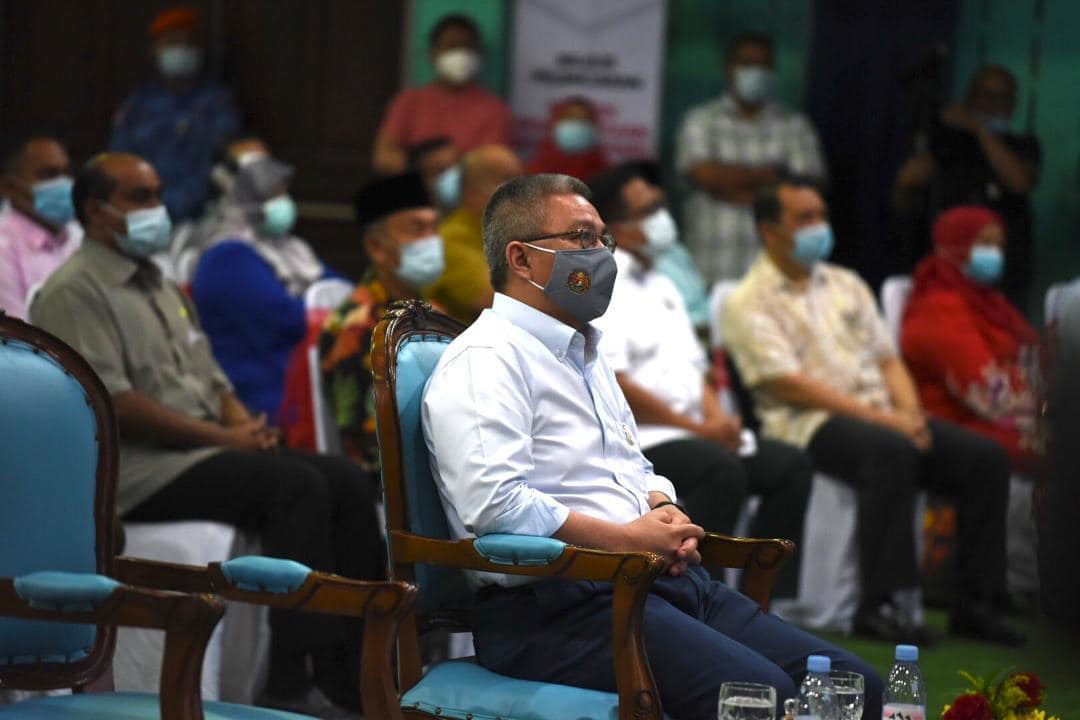KUALA LUMPUR, Oct 23 — The Ministry of Health (MOH) is working jointly with the Ministry of Domestic Trade and Consumer Affairs (KPDNHEP) to implement price controls on medicines, Health Minister Dr Adham Baba said.
The measure will be executed through the Price Control and Anti-Profiteering Act 2011 (Act 723) in the public and private sectors to ensure that treatment costs in private hospitals do not increase arbitrarily.
“The wholesale ceiling price is determined based on the External Reference Price (ERP), a price comparison with Commonwealth countries, regional countries and countries that have close Gross Domestic Product (GDP) used as benchmarks in negotiations,” Dr Adham Baba answered a question raised by Senator Liew Chin Tong through a written parliamentary reply on September 21.
“It is to ensure that the price of medicines in Malaysia is equivalent to other upper middle income countries and does not exceed the price of the drug in high-income countries.”
The DAP lawmaker had asked MOH to state whether the ministry will use the ERP mechanism to ensure that drug prices are commensurate and do not exceed the benchmark level set by certain countries.
“The retail ceiling price will be determined based on the regressive mark-up level according to the wholesale ceiling price,” Dr Adham added.
The former health minister in the then-Pakatan Harapan (PH) government, Dzulkefly Ahmad, had proposed controlling medicine prices, even though general practitioners (GPs), pharmacists, private hospitals, and both local and multinational pharmaceutical companies had opposed legislated drug price ceilings.
Dr Adham’s written parliamentary reply shows that the Perikatan Nasional government is in line with PH’s stand to control medicine prices, despite widespread opposition from the industry.
The Pharmaceutical Association of Malaysia (PhAMA), which represents multinational pharmaceutical corporations in Malaysia, had expressed its willingness to declare wholesale medicine prices to MOH so that the government could look at retail prices instead. But the association also warned the government that drug price controls could hurt Malaysia’s medical tourism.
According to MOH, the cost of treatment in a private health facility is inclusive of hospital fees and professional fees. The professional fees consist of consultation and procedural fees regulated by MOH based on the Thirteenth Schedule of the Private Facilities and Services (Private Hospitals and Other Private Healthcare Facilities) Regulations 2006.
This means that the Health Ministry regulates the maximum chargeable fees for registered doctors and dentists in private health facilities.
However, unlike regulated medical professional fees, hospital fees like charges for nursing care, medical equipment, disposable equipment like needles, syringes, gauze and test charges, laboratories, and drug charges are not regulated by MOH.
Earlier, Senator Kesavadas Achyuthan Nair had asked the health minister to state whether the ministry has any plans to regulate the cost of private hospitalisation, so that arbitrary insurance premiums for hospitalisation do not burden the bottom and middle 40 per cent of income earners.
“MOH is aware of the issue of rising treatment costs in private hospitals and its implications to the people and the increase in insurance premiums,” Dr Adham told the Senate.
“MOH has collaborated with the Central Bank of Malaysia (BNM), as well hold discussions with stakeholders such as the Association of Private Hospitals Malaysia (APHM), Federation of Malaysian Consumers Associations (FOMCA), Consumers Association of Penang (CAP, Malaysian Competition Commission (MyCC), Malaysian General Insurance Association (PIAM), MOH’s Pharmaceutical Services Division and the Medical Device Authority (MDA) to find a solution to this issue.”
Dr Adham also lised the operational costs of a hospital — such as rent and maintenance of different facilities according to size, type of services offered, and location — as some of the constraints in regulating hospital fees.
“In addition, the cost of medical equipment, disposable equipment such as needles, syringes, and gauze, and the cost of laboratory tests and medicines are also difficult to be determined as it depends on the market price,” Dr Adham said.
However, MOH has taken the following measures to ensure treatment cost in private hospitals does not increase arbitrarily. They are:
- Ensure the hospital conducts grievance procedures on all complaints.
- Ensure that dissatisfaction or complaints from various parties regarding fees are reviewed and investigated.
- Ensure that private hospitals, as well as private medical practitioners and dentists, adhere to professional fees as stated in the Thirteenth Schedule.
- Allow patients to get information about estimated charges that will be charged prior to treatment through financial counseling by the private hospital.








